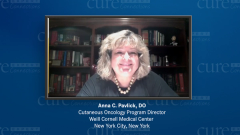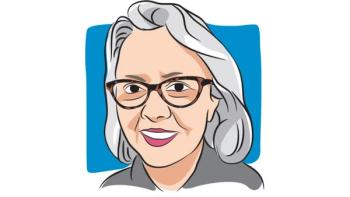
Treatment Challenges of laBCC
Anna C. Pavlick, D.O., describes the various challenges health care providers may face when treating patients with locally advanced basal cell carcinoma (laBCC).
Anna C. Pavlick, D.O.: Some of the biggest challenges in treating patients is really, these are our seniors, and many of our seniors don’t have the availability of transportation. They sometimes have difficulty getting to see us. Sometimes their veins are not good. Sometimes they can’t properly swallow. So I think when we talk to patients about what their treatment options are, we really need to look at the whole patient because that whole patient is someone with a lot of life experience who may have multiple medical issues, who may or may not have family support. Many seniors will live alone, and it may make it difficult to be able to call and report side effects.
And I really try to encourage my patients to come with someone or to at least have a contact that may be on the phone, or we can video them into the visit, so that patients as well as caregivers or family know what to look for, know what to report, and really are integrally involved because it really is, it’s a team effort. It’s not me just prescribing a medicine. It’s not just a patient taking a drug. All of these new therapies really require teamwork between physicians, nurses, patients and caregivers because I will tell people that the sooner that they report a side effect, the sooner that we can fix it and the better their quality of life will be, and the more likely we’ll be able to continue with their cancer treatment rather than have to stop and deal with overwhelming toxicity.
Transcript edited for clarity.





